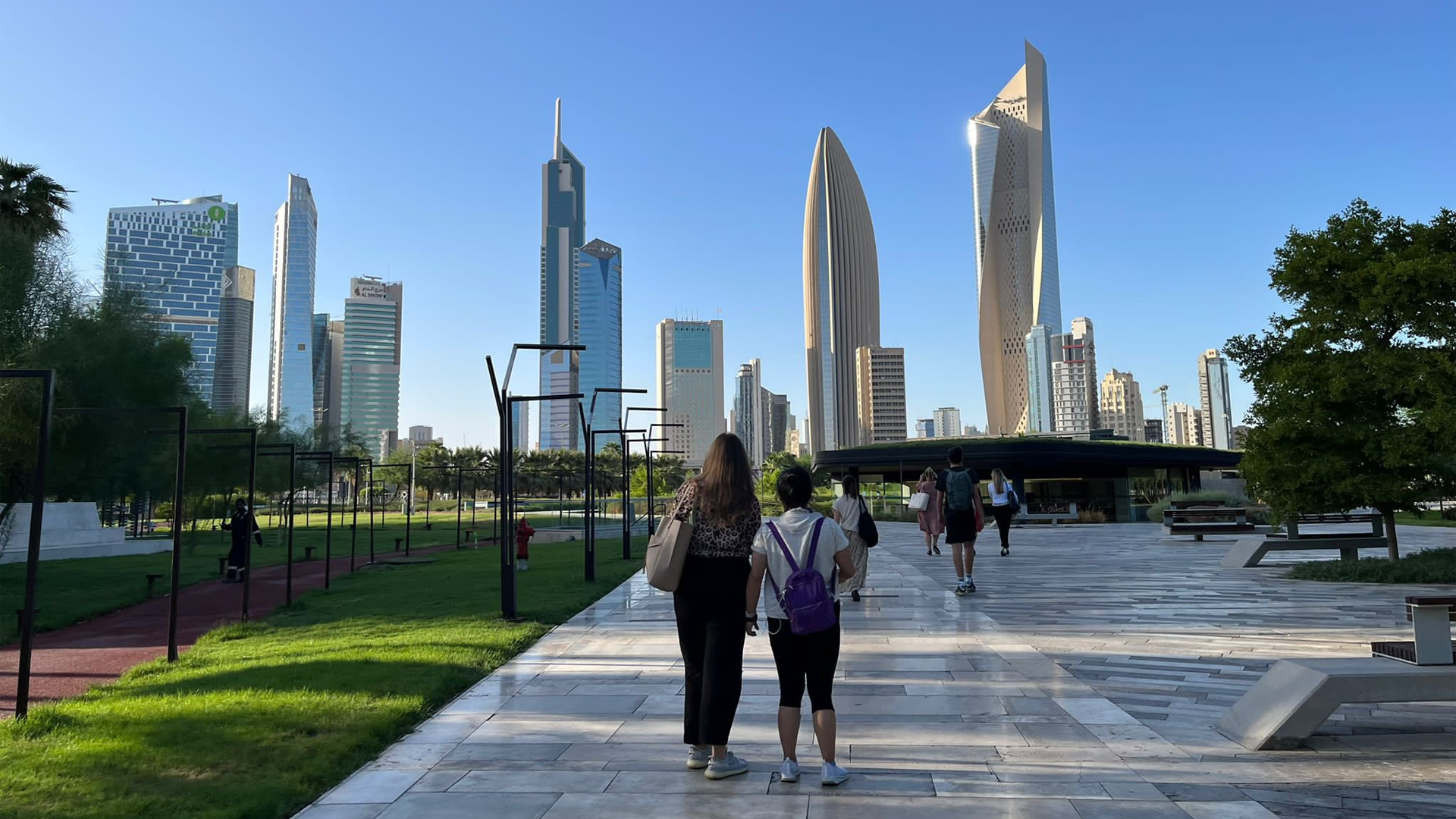
Summer programmes can be a totally different experience compared to normal university life. By participating in a summer programme, you’ll be taking the first step on an exciting journey that will be an educational, cultural and personal experience. Summer programmes invite you to become part of a special group of students who have represented the University at many partner universities across the world.
Spending a summer abroad during your degree can significantly enrich your academic studies. It’s a great way to enhance your employability and make yourself stand out from the crowd. You’ll be able to explore a new country, immerse yourself in the local culture, and experience being part of an internationally diverse academic community. Build up your personal and professional networks as you make new friends from across the world.
Gain life experience. Boost your self-confidence. Become truly independent. Spending time studying overseas can be a life-changing experience. You’ll discover new strengths and ambitions which will set you apart when you graduate. Employers will value your ability to fit into different environments and embrace change.
These unique academic and cultural experiences allow you to engage in a variety of different topics. From French language in Toulouse, to literature and traditional dance in Bangalore and fashion design in Seoul.
Don’t just take our word for it, here’s some feedback from previous students who have taken part:
“One of the best things I’ve ever done, it was an eye opening and life changing experience!!” – Charley, India 2024
“A month filled with some of the most unforgettable times of my life with people I’ll never forget.” – Anouk, Spain 2024
All summer programmes advertised will have an academic element which you will be required to engage with, this may be written or practical elements to be completed during the programme. There will also be cultural trips and sightseeing opportunities for you to take part in as well as time for you to enjoy your surroundings at your own leisure.
Edge Hill University programmes
Bangalore, officially known as Bengaluru, is the capital city of the Indian state of Karnataka and is often referred to as the “Silicon Valley of India” due to its role as a major hub for the country’s information technology (IT) industry.
Bangalore is known for its cosmopolitan nature, where people from all parts of India and the world come to live, work, and study. The city has a rich cultural heritage, with influences from various ethnic groups, making it a melting pot of traditions, languages, and cuisines. Kannada is the official language, but English, Hindi, and other regional languages are widely spoken.
Bangalore, India – 6 July to 3 August (Travel dates may be a day either side of advertised dates)
The Summer Course 2025 at CHRIST University, Bangalore, India, is designed to invite, initiate, and innovate your inner thoughts and broaden them to envision a better tomorrow. Meet students and educators and explore how cultures can facilitate, enhance, and expand understanding and create a sense of Global Connectivity. This 4 week programme is broken down into three subject areas:
| Indian Culture and Wellness | Social Outreach and Volunteerism | Indian Literatures |
| Understanding of holistic wellness and health Yoga and meditation Stress management through pranayama Mindfulness meditation Unity in Diversity- arts, theatre and music A combination of music, dance and theatre Introduction to the Natyashashtra Bollywood and folklore Practicing Indian music to gain better breath control Enunciation and clarity in speech Street Theatre | Environmental advocacies sustainable initiatives Development of volunteering activities Urban and rural camp visits Awareness campaigns Sensitization of social issues Woman empowerment Community education and health NGO Interactions | Read, interpret, and analyse Indian literature with attention to content, historical and cultural context. Make an effort to define ‘what is Indian’ Introduction to short stories, poems, novels and plays Interaction with the contemporary writers and thinkers living in Bangalore |
The programme also includes:
- Majority of meals on campus (some lunches or evening meals are left free for you to explore at your own leisure/cost)
- Single room ensuite accommodation with shared kitchen and laundry facilities
- Local sightseeing
- Overnight camp
- Day excursion to Mysore
- Valedictory ceremony
Christ University is set in a vibrant and easy to navigate area of Bangalore where you will find many eateries, shopping malls, temples, markets and green outdoor space. You will have contact with a student buddy who will be able to give you tips and advise on the best places to go, what activities you can join in with and where to find the best night life or local quiet spots to enjoy.
Costs you will need to cover
As we have a continued reciprocal partnership with Christ University, there are no programme fees associated with this summer programme.
| Programme Fee | £0 |
| Accommodation | £0 |
| Flights (approx.) | £750 |
| Other (approx.) visa, insurance, travel to airport etc. | £50 – £100 |
Turing Funding
| Grant Type | WP Students* | Non-WP Students |
| Living Costs Grant | £588 | £476 |
| Travel Grant | £745 | NA |
Any costs that are higher than the grant amounts will need to be self funded.
* Please see WP information further down the page to see if you would qualify.
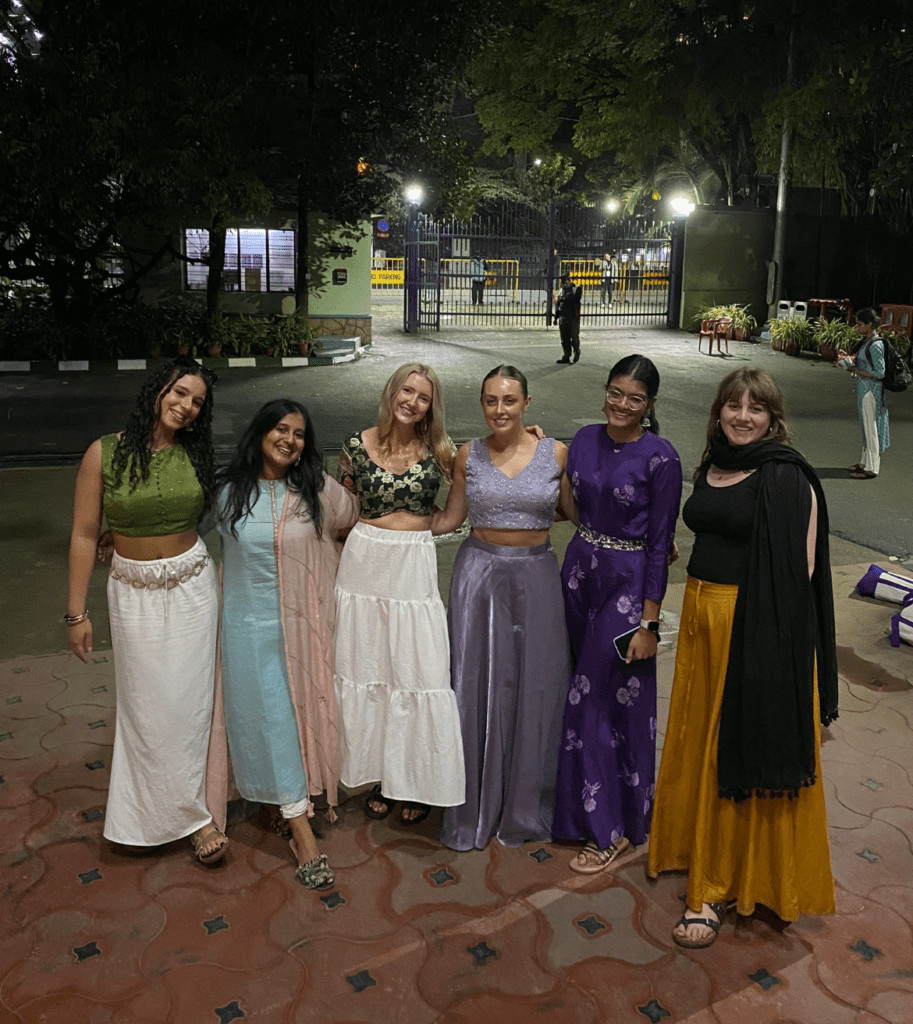

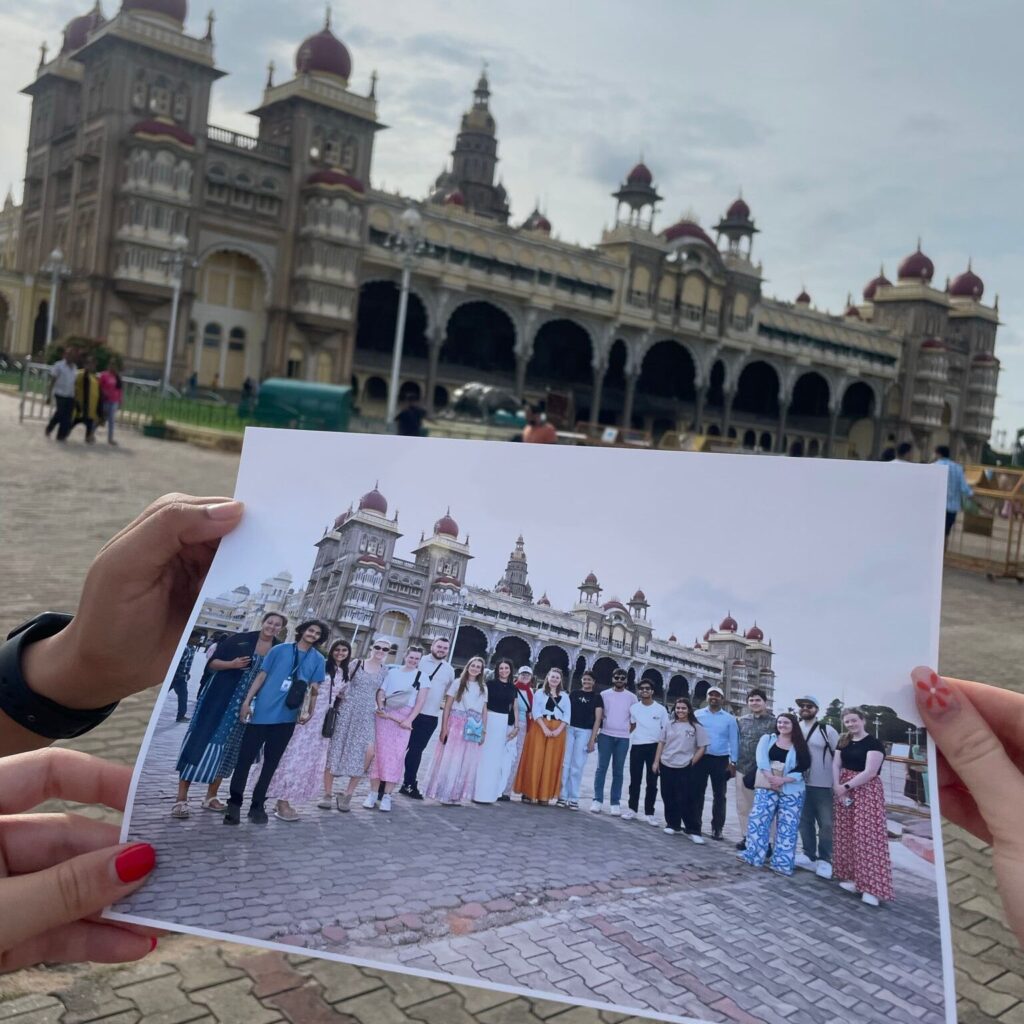
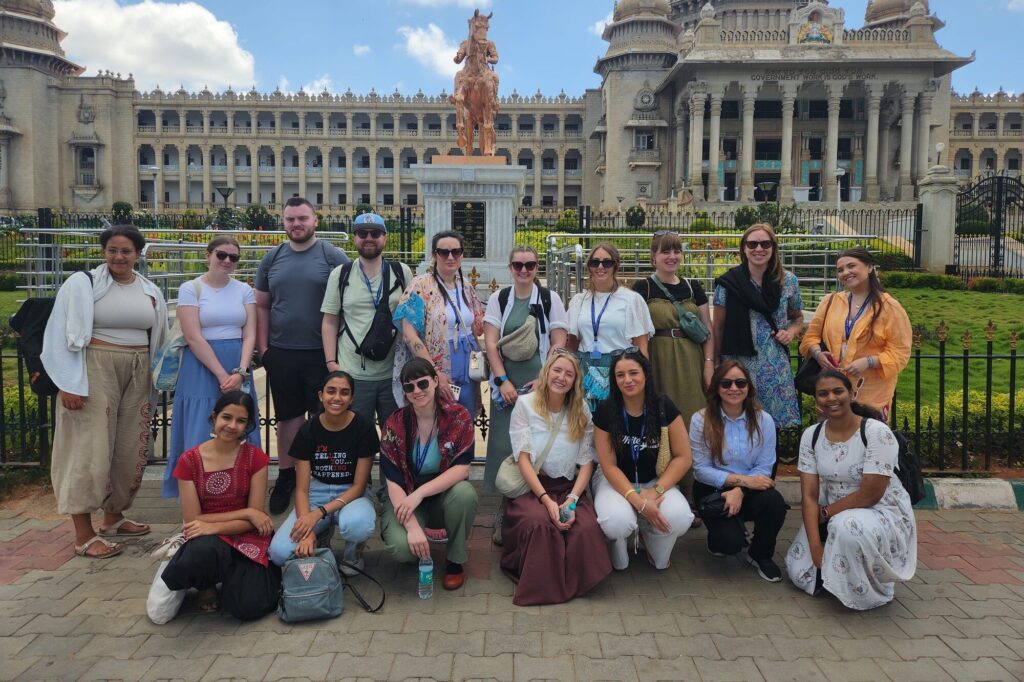
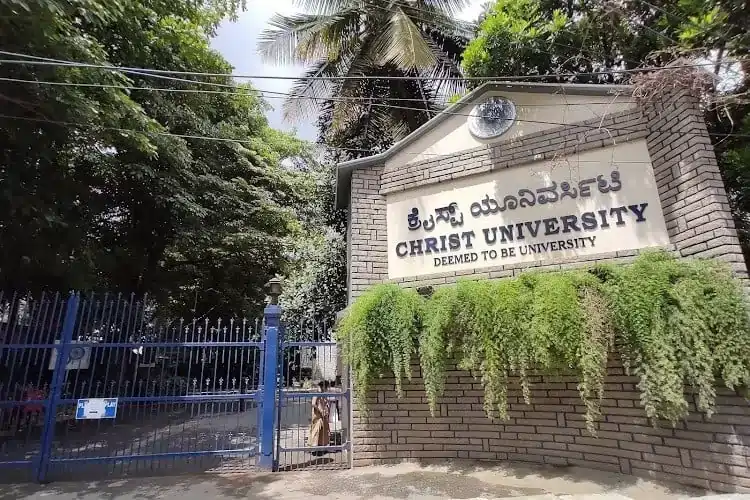
Self-organised programmes
Dankook University is located in Seoul, a vibrant city with a mix of tradition and innovation. Imagine exploring the ancient beauty of Gyeongbokgung Palace, where you can witness a traditional changing of the guard ceremony, and then hopping on the subway to a futuristic neighbourhood like Gangnam, famous for its sleek skyscrapers and trendy shopping spots. Add to that the fashion-forward boutiques, endless entertainment from K-pop culture to world-class museums, and the warmth of the people, and you’ve got a city that’s as dynamic as it is captivating. Whether you’re into cutting-edge tech, art, or simply soaking in the lively atmosphere, Seoul offers something for everyone.
Seoul, South Korea – 5 July to 1 August (Travel dates may be a day either side of advertised dates)
The four-week Academic Program (AP) brings together students from around the world to take one or two engaging academic courses taught by international and DKU professors, with the opportunity to earn transferable credits. Outside the classroom, the program offers a variety of exciting after-class activities and field trips. With activities like K-pop dance, Taekwondo, and Temple Stay, participants are able to experience Korean culture and enjoy an unforgettable summer.
Courses to choose from:
| MORNING | AFTERNOON |
| Contemporary Korean Culture and Society Interpersonal Communication English Language Teaching and Learning Fashion Entrepreneurship Korean Language-Beginner Korean Language-Intermediate | Mindfulness for Students Language and Social Justice American Foreign Policy: America’s Wars in Asia Public Speaking Traditional Korean Culture and Society in Korean Movies Decolonial Fashion Thinking and Practice Jiujitsu for Self-Defence Understanding the e-sports industry and practice Korean Language-Beginner |
- All participants will be placed in a double occupancy room of our on-campus dormitory.
- Each room is furnished with two single beds, bedding, desks, chairs, wardrobes, a phone, WiFi, A/C, and a private bathroom. Towels and cleaning supplies are not provided.
- A variety of facilities are also available for students’ convenience such as a laundry room, restaurant, gym, convenience store, etc.
- Students don’t need to bring bedding from home. Western style bed sheets aren’t widely used in Korea; a Korean style sheet/mat for use on the bed as well as a blanket and pillow are provided to each student.
- When double rooms are full, you may be assigned to a 4-person room.
- Please note that students can stay in the dorm only for the length of the program period.
Costs you will need to cover
| Programme Fee | $1800 (£1440) |
| Accommodation | Included in programme fee |
| Flights (approx.) | £850 |
| Other (approx.) visa, insurance, TB test (on arrival in SK) travel to airport etc. | £50 – £100 |
Turing Funding
| Grant Type | WP Students* | Non-WP Students |
| Living Costs Grant | £588 | £476 |
| Travel Grant | £905 | NA |
Any costs that are higher than the grant amounts will need to be self funded.
* Please see WP information further down the page to see if you would qualify.
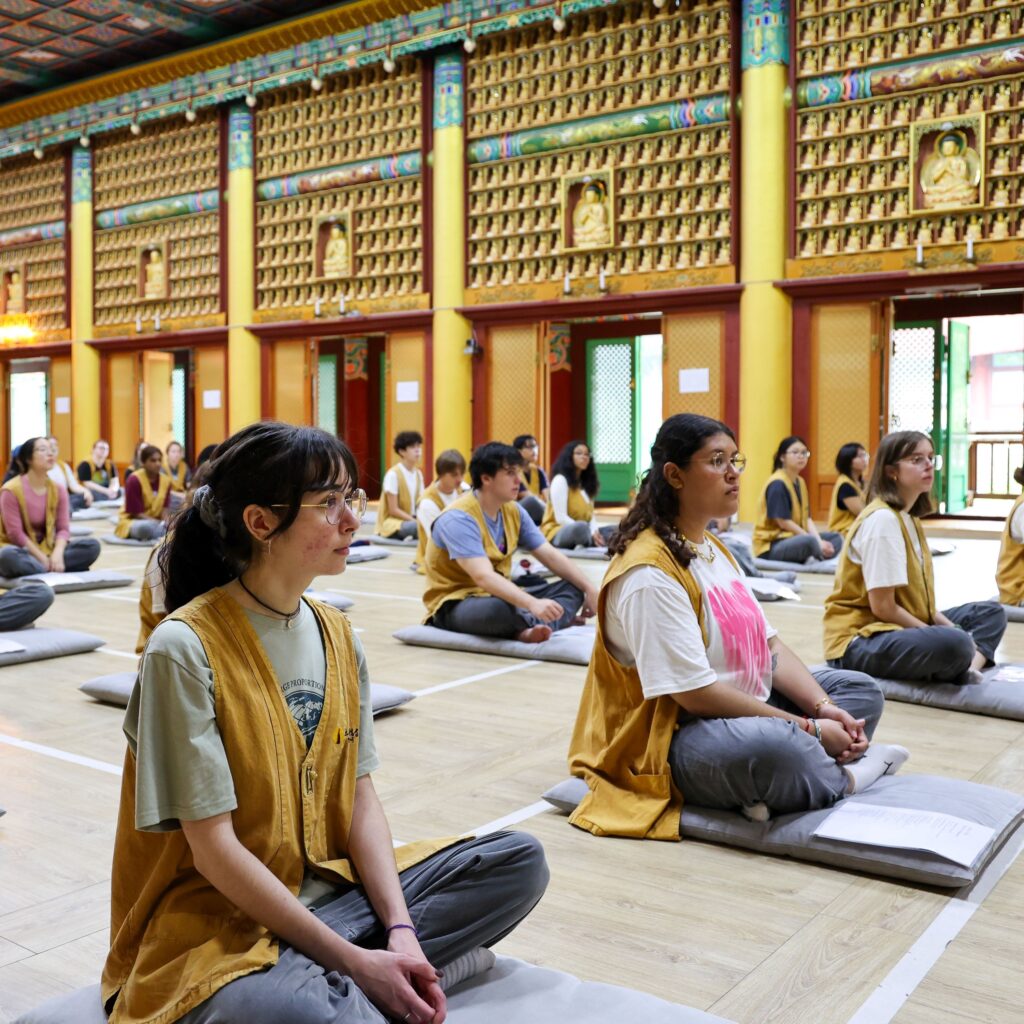
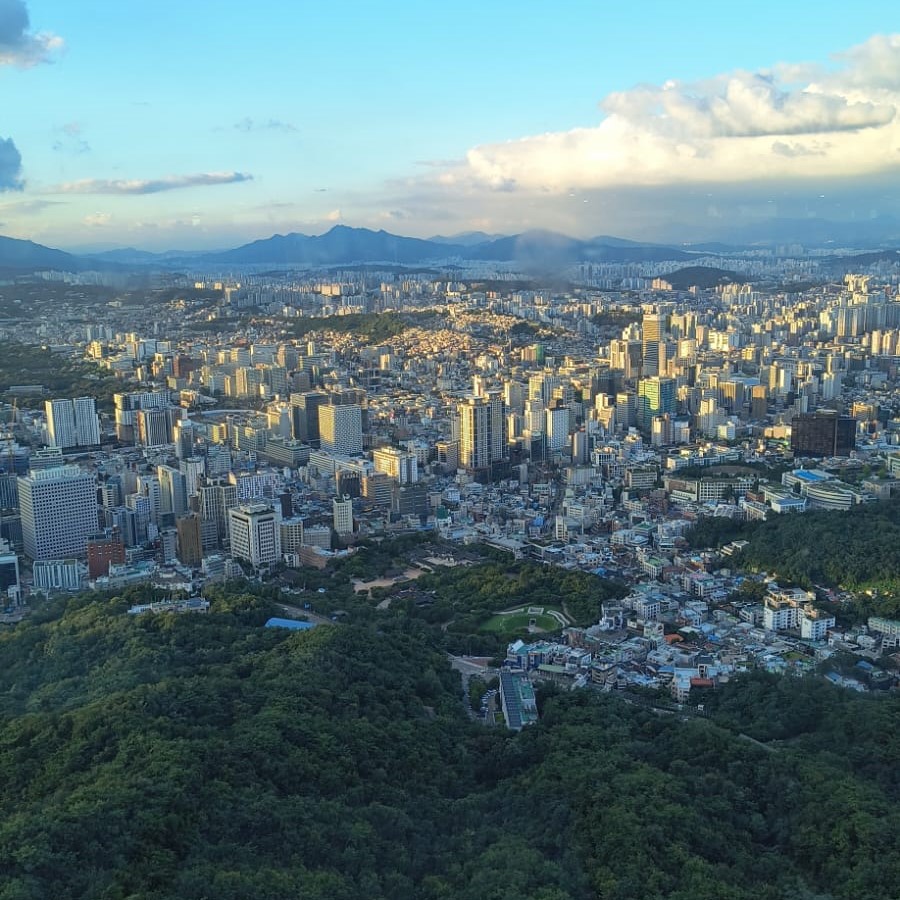
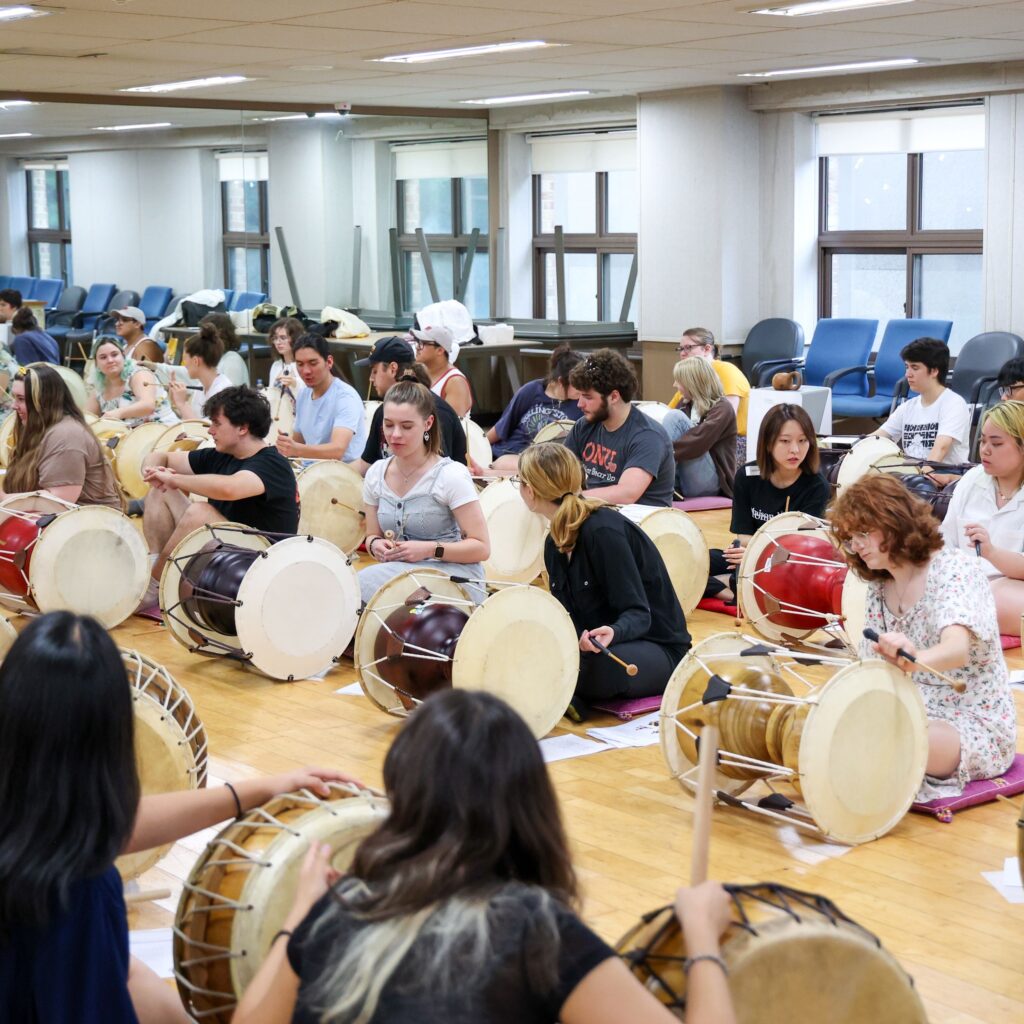
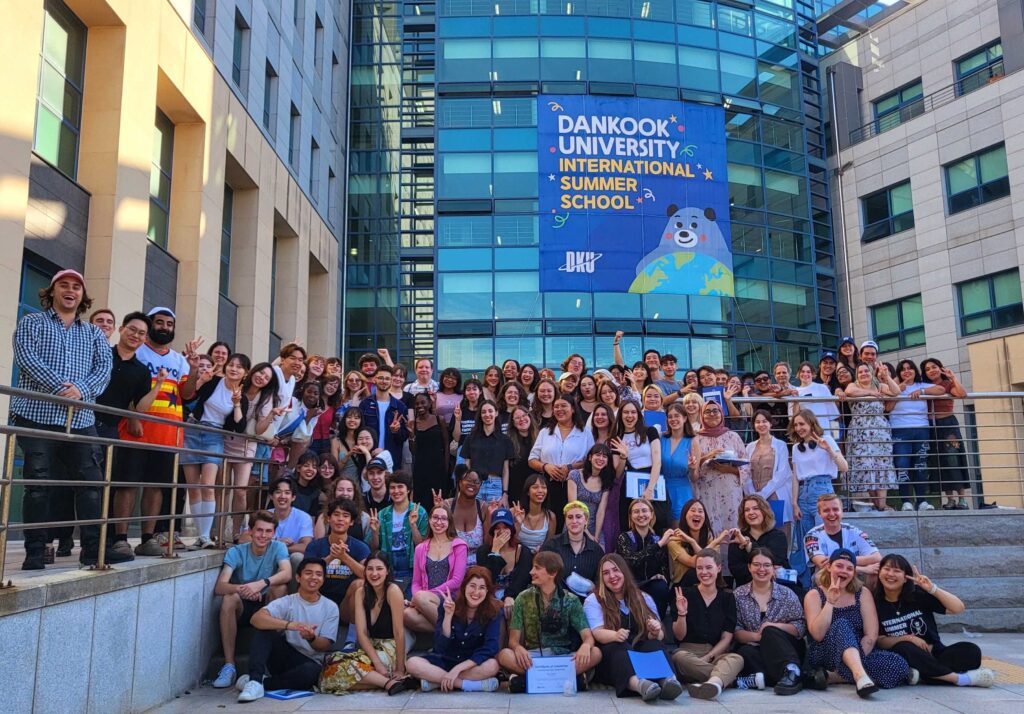
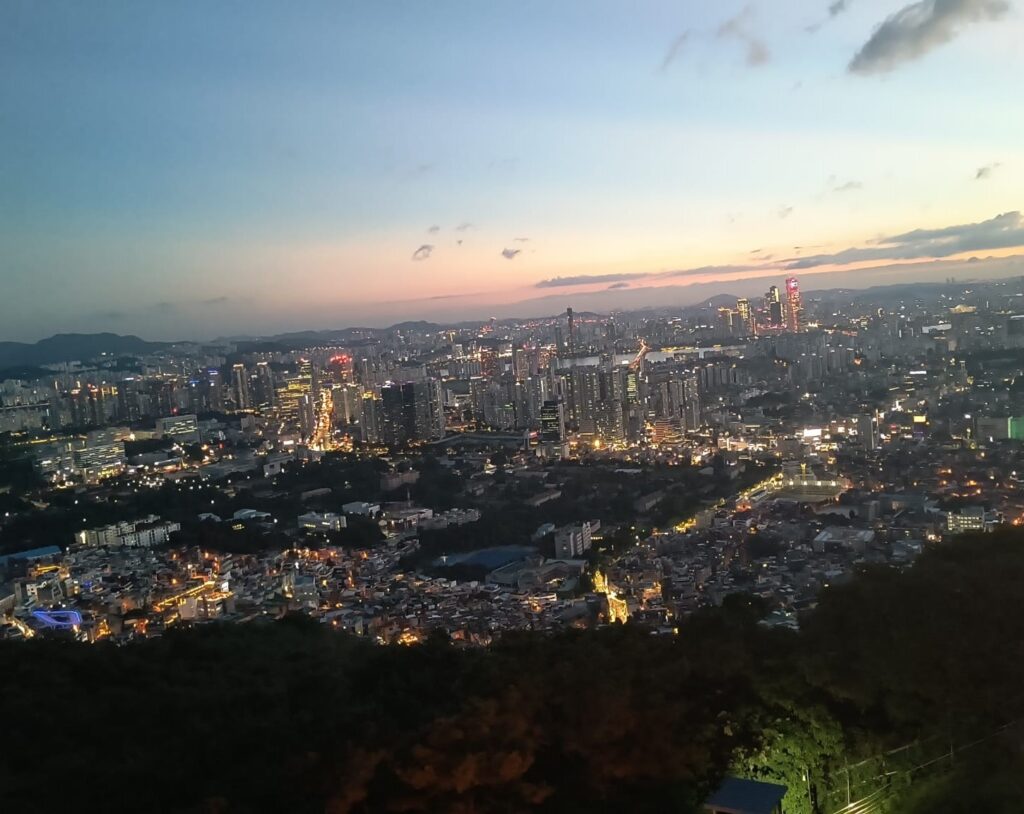
Mexico is a vibrant and diverse country, bordered to the north by the United States, to the south and west by the Pacific Ocean, to the southeast by Guatemala, Belize, and the Caribbean Sea, and to the east by the Gulf of Mexico. Known for its rich cultural heritage, stunning landscapes, and history, Mexico is a place where ancient traditions meet modern life.
The country has a population of over 130 million people, making it the 13th most populous country in the world. Its capital, Mexico City, is one of the largest and most influential cities globally. Mexico has a rich mix of indigenous cultures, Spanish colonial influence, and modern innovation, creating a unique and diverse national identity.
Mexico, multiple locations – 27 June to 26 July (Travel dates may be a day either side of advertised dates)
The Tec De Monterrey iSummerMx Programs are an itinerant academic experience for students who love traveling and learning about new cultures. In this program you’ll visit several Tec de Monterrey campuses in different cities. This means that you will learn about multiple regions of the country without ceasing your studies. Each program has special activities, conferences and trips that will make the experience unforgettable!
The Mexican Cultural Heritage and Social Challenges program will help you to understand, identify and analyse aspects of Mexico’s culture so that you integrate them into your cultural knowledge. You will be able to experience a part of Mexico’s heritage by visiting Mexico City, Puebla, Guadalajara and Queretaro.
Course syllabus:
| Cultural Heritage of Mexico | Violence, Dignity, and Social Justice |
| This course examines the composition of the cultural heritage of Mexico, drawing from two analysis dimensions by doing a study about the material characteristics of objects and historical sites to distinguish between tangible and intangible heritage. | In this course, you will identify societal problems such as exploitation, vulnerability, and expressions of violence, describing the ethical elements involved in the situation and approaching them from elementary notions of ethics, personal beliefs, customs, or traditions. |
You will spend time at each of the below Tec De Monterrey campuses during this summer programme:
| Mexico City | Puebla | Guadalajara | Querétaro |
| Campus Ciudad de México is the second largest campus, and it is considered the newest and most modern campus with approximately 8000 enrolled students each semester. Located in the Southern part of the Capital City, Mexico City is a true contemporary megalopolis filled with contrasts, characterized by a variety of museums, theatres, cinemas, festivals and entertainment, hard to find anywhere else. | Campus Puebla, located in one of the city’s best districts, opened its doors in 2003. On 25 hectares, you will find excellent facilities with classrooms equipped with state-of-the-art technology as well as cafeterias, gymnasium, fields, and courts to practice your favorite sport. Furthermore, the city of Puebla is located 2 hours away from Mexico City, which makes this campus very attractive for students who wish to travel without having to move great distances. | Campus Guadalajara, located west of the metropolitan area in the municipality of Zapopan, the campus has become one of the most relevant campuses of Tec de Monterrey and one of the most modern. Guadalajara is considered a capital of culture, being the home of the well-known Mexican icons such as mariachis, tequila, and charreria, all recognized as World Heritage by UNESCO. | Campus Querétaro, is the fourth largest campus in the country with more than 7000 students, of which 55% are from other states and more than 400 international students from around the world. Queretaro’s excellent location, modern infrastructure, diversity of people, food, and touristic places make the state one of the best destinations to visit. In addition, Queretaro is one of the safest, innovative, and state-of-the-art sectors in industrial production, education, and technology. |
Costs you will need to cover
| Programme Fee | $2350 (£1860) |
| Accommodation | Included in programme fee |
| Flights (approx.) | £975 |
| Other (approx.) visa, travel insurance, travel to airport etc. | £50 – £100 |
Turing Funding
| Grant Type | WP Students* | Non-WP Students |
| Living Costs Grant | £588 | £476 |
| Travel Grant | £905 | NA |
Any costs that are higher than the grant amounts will need to be self funded.
* Please see WP information further down the page to see if you would qualify.
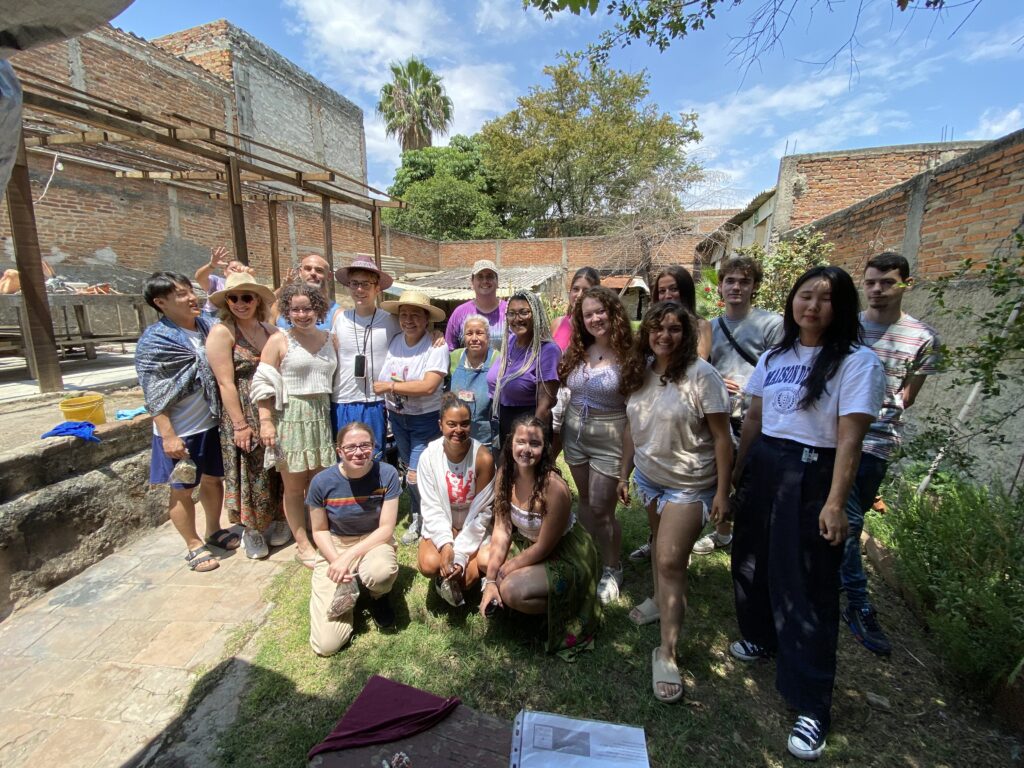
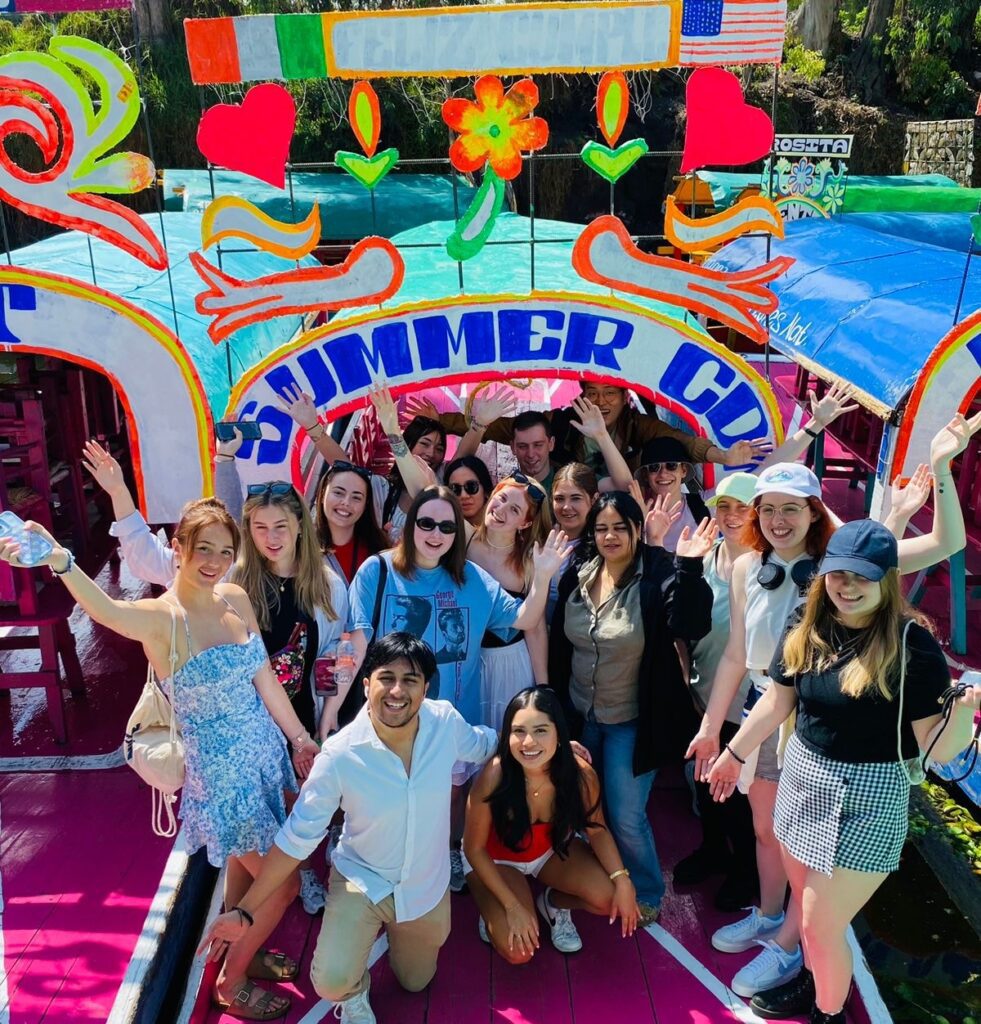
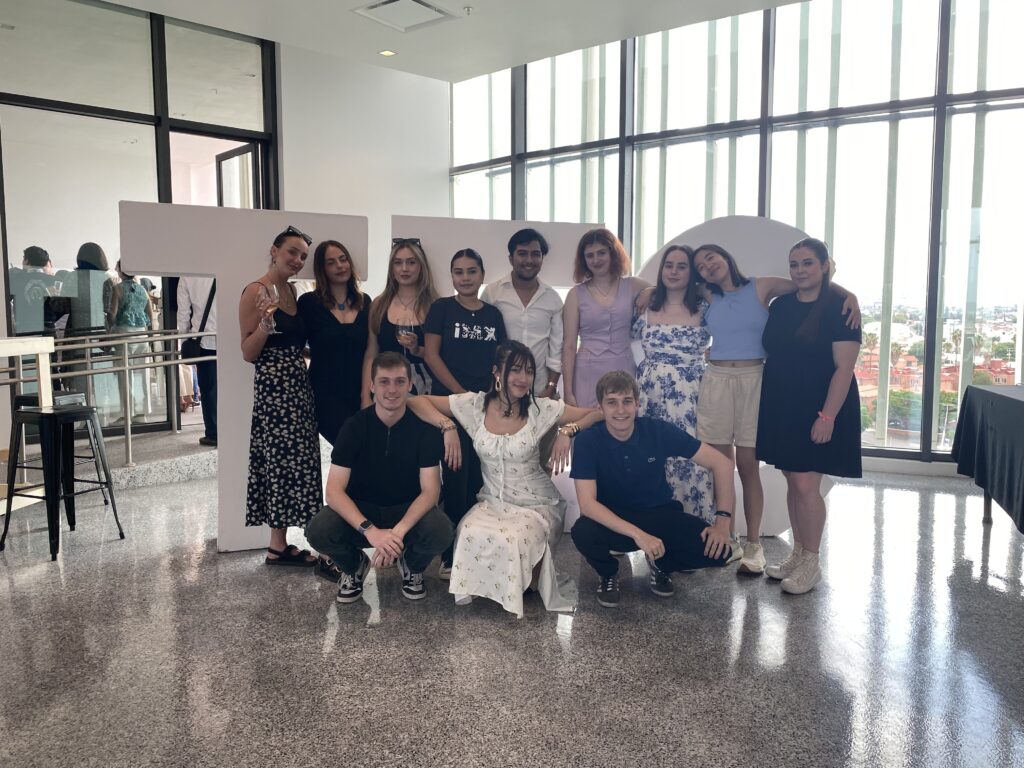
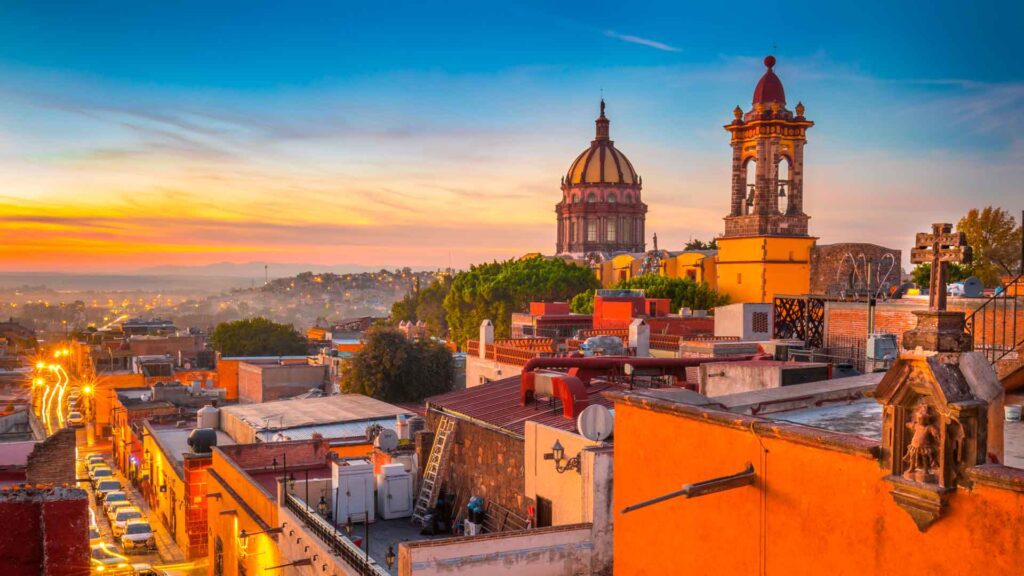
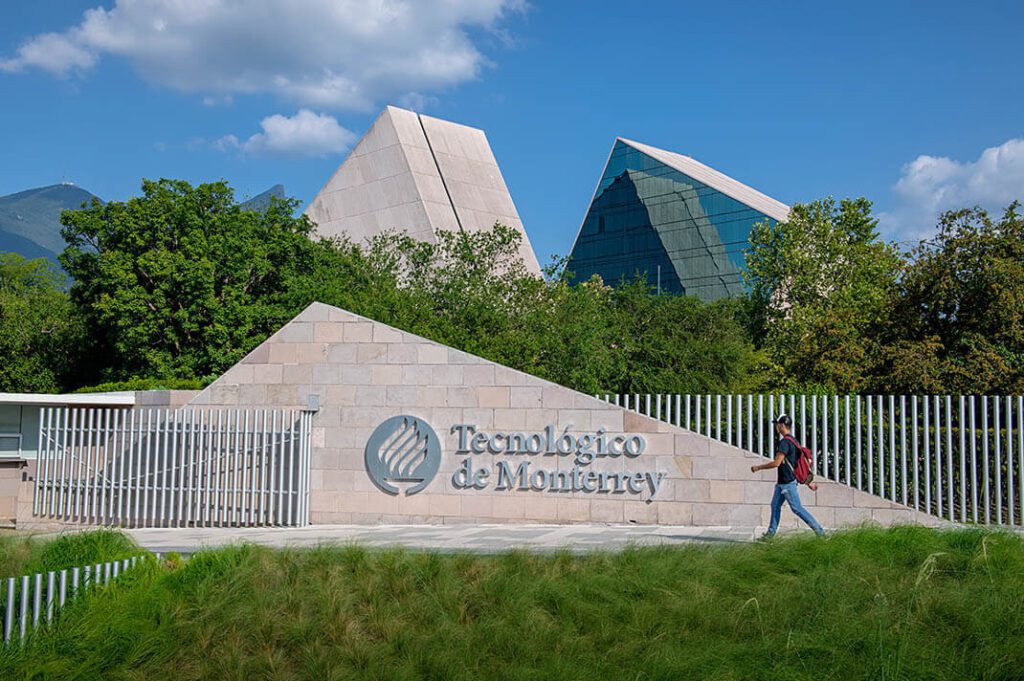
Toulouse, France – 30 June to 25 July (Travel dates will need to be a day either side of advertised dates)
Toulouse is a vibrant city located in the southwestern part of France, known for its rich history, stunning architecture, and its reputation as a hub for the aerospace industry. It is the capital of the Haute-Garonne department and the Occitanie region. Often referred to as “La Ville Rose” (The Pink City) due to the distinctive pink terracotta bricks used in many of its buildings, Toulouse offers a blend of modernity and tradition.
The University of Toulouse (Université de Toulouse) is a prestigious and historic higher education institution located in the heart of Toulouse, France. Established in the 13th century, it has played a significant role in shaping education and research in the region and beyond. Today, it is one of the largest university systems in France, offering a wide range of disciplines across several campuses in Toulouse and surrounding areas.
French Language and Culture
The French language courses are taught from a communicative perspective, focusing on skills such as written comprehension, oral comprehension, written expression, oral expression, and interaction. The curriculum follows the levels outlined in the Common European Framework of Reference for Languages (CEFR).
| Course Objectives | Workshop Objectives | Required Level |
| The course materials are dynamic and interactive, covering various aspects of life in France, including cultural, geographical, economic, scientific, artistic, and sports-related topics. The courses are designed to teach French as a Foreign Language (FLE) at all levels, with a commitment to supporting students’ progress in their communication skills in French. | The workshops also focus on the learning of FLE, with an emphasis on project-based activities that foster creativity. These workshops encourage students to practice the language in new ways, with a particular focus on oral skills. They often culminate in a tangible final product, such as a theatre performance, radio broadcast, or literary work. | The summer school offers four levels of classes, ranging from beginner to advanced. A test is conducted on the first day to determine each student’s level and ensure they are placed in the appropriate group |
FORMULA COURSES:
60 hours of classes
24 hours of workshops
| The Cultural Package | Accomodation |
| This Cultural Package allows you to discover French gastronomy and the major sites of Occitanie while sharing unique moments with the other students of the program. It includes: Restaurant dining at La place Saint-Georges Cheese tasting Discover Toulouse “The Pink City” Boat cruise on the Garonne 2 sightseeing excusions in 2 major sites of Occitanie, on saturday whole day with lunch at the restaurant Other outings and animations according to the cultural program of the city of the moment (exhibition, museums etc…) | Student have a room in University Residence with shower, private toilet and 1 common kitchen. The rooms include linen but the kitchen does not include crockery or other equipment. The residences are not air-conditioned, various services are not provided (household, household products, various equipment…) The residence is equipped with WIFI. |
Costs you will need to cover
| Programme Fee | €700 (£585) |
| Cultural Package (optional) | €310 (£260) |
| Accommodation | €350 (£292) |
| Flights (approx.) | £350 |
| Other (approx.) insurance, travel to airport etc. | £50 – £100 |
Turing Funding
| Grant Type | WP Students* | Non-WP Students |
| Living Costs Grant | £588 | £476 |
| Travel Grant | £250 | NA |
Any costs that are higher than the grant amounts will need to be self funded.
* Please see WP information further down the page to see if you would qualify.
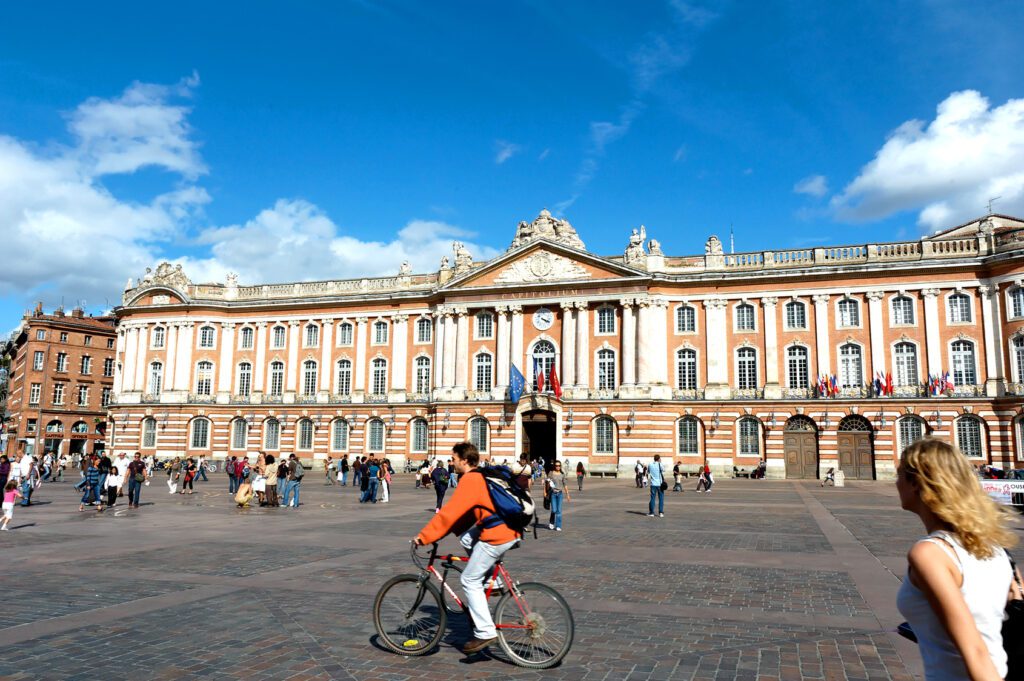
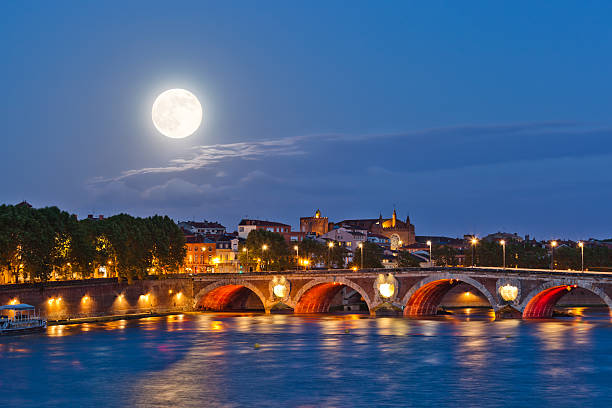
Málaga, Spain – 1 July to 30 July
Málaga is a beautiful coastal city located in the southern part of Spain, in the region of Andalusia. Known for its rich history, vibrant culture, and sunny Mediterranean climate, it’s one of the most popular destinations in Spain. With its mix of history, culture, modernity, and natural beauty, Málaga is a dynamic city that appeals to both tourists and residents alike. It’s a place where you can stroll through ancient streets, enjoy world-class museums, relax on the beach, and experience authentic Andalusian life. Whether you’re interested in exploring its historical sites or enjoying the lively atmosphere, Málaga offers something for everyone.
The University of Málaga (Universidad de Málaga, or UMA) is located in Málaga, a vibrant city in the south of Spain. It was founded in 1972 and is recognized as one of the leading universities in the region of Andalusia. The university is known for its commitment to research, innovation, and high-quality education across a wide range of disciplines. The university’s campus is modern and well-equipped, featuring cutting-edge facilities like research centers, libraries, and sports complexes. It is also situated close to the Mediterranean coast, offering students a great quality of life in a sunny and culturally rich environment.
Spanish Language
Malaga University is a young and modern university which has been offering Spanish courses to students from all over the world for more than a decade. More than 2000 foreign students take part in one of its Spanish language and cultural courses, with students coming from all corners of the world.
| Course Content | Advantages | Required Level |
| 1-2 hours of highly focused Spanish language and grammar per day. 1-2 hours of intensive communicative practice per day. Remaining time is spent on additional skills such as listening and reading comprehension. | Perfect choice for those who only have a limited period of time in which to study in Spain. The chance to significantly improve Spanish language skills in a short space of time. Smaller classes ensure a more personalized experience. Chance to combine as many 4 week courses as you wish. | The summer school offers four levels of classes, ranging from beginner (A1) to advanced (C2). |
The University offers courses open to all levels: A1 (beginner) through to C2 (mastery), according to the European framework. Students take an entry-level test upon arrival, and are then divided into groups accordingly. Each course includes books, learning material and basic medical insurance, and students receive a copy of the class timetable on the first day.
| Accommodation | Local Area |
| Shared student apartment This is the cheapest and most popular option. The apartments are all within 10-30 minutes walking distance from the campus. They usually comprise 3-5 bedrooms (each containing a bed, wardrobe and desk), 2-3 bathrooms, a shared kitchen and a living room with TV and sofas. As this is a budget accommodation, the apartments are simple and no-frills. Students will be responsible for cooking, cleaning, laundry, etc. and will normally be grouped with other international students. | The area surrounding the University of Málaga (UMA) is lively, diverse, and rich in cultural, historical, and recreational offerings. The area around UMA combines academic, cultural, and leisure opportunities, making it an ideal location for university life. Whether you’re exploring the city’s rich history, relaxing at the beach, or enjoying a day in the park, there’s always something exciting to do near the University of Málaga. |
Costs you will need to cover
| Programme Fee | €800 (£670) |
| Accommodation (approx.) | €420 (£350) |
| Flights (approx.) | £150 |
| Other (approx.) insurance, travel to airport etc. | £50 – £100 |
Turing Funding
| Grant Type | WP Students* | Non-WP Students |
| Living Costs Grant | £588 | £476 |
| Travel Grant | £250 | NA |
Any costs that are higher than the grant amounts will need to be self funded.
* Please see WP information further down the page to see if you would qualify.
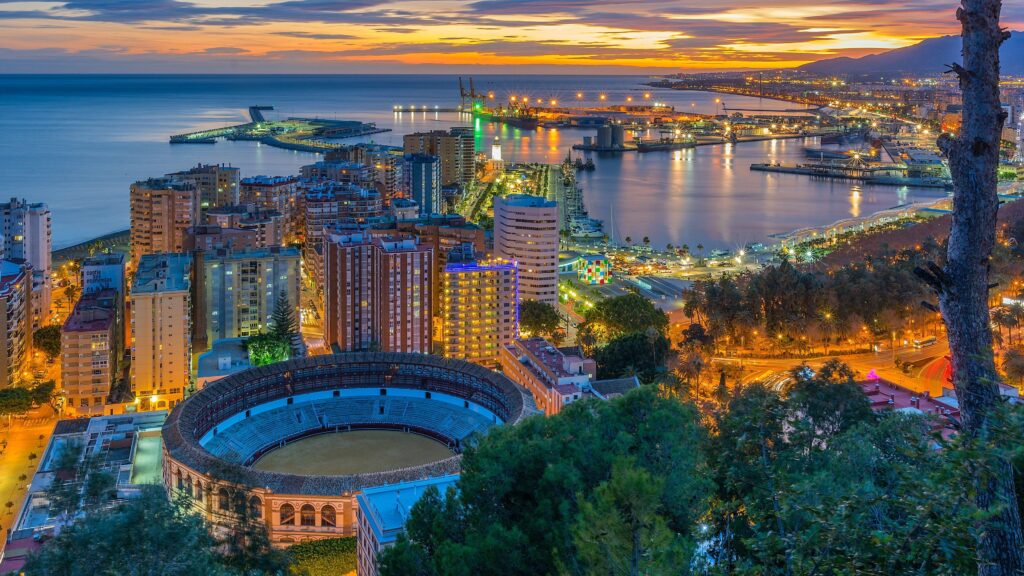
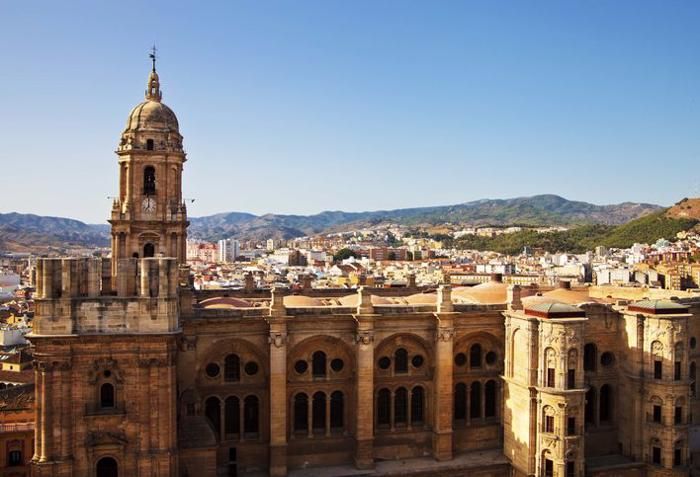
Tübingen, Germany – 1 August to 29 August
Tübingen is a charming university town located in the southwestern part of Germany, in the state of Baden-Württemberg. It’s known for its picturesque medieval architecture, rich history, and vibrant academic atmosphere. The town is situated on the banks of the Neckar River, surrounded by lush landscapes, which makes it an especially attractive place to visit or live. Both France and Switzerland are easily accessible from Tübingen, making it a great location for exploring these neighbouring countries while enjoying the calm of a smaller German town.
The University of Tübingen (officially known as Eberhard Karls University of Tübingen) is one of Germany’s oldest and most prestigious universities, with a rich history and a global reputation for academic excellence. Established in 1477, it has become a leading center of research and education, particularly known for its work in the humanities, natural sciences, and medicine.
T-IES Summer School
Students can choose between two Study Tracks:
Track (A) “The EU in Permanent Crises? Perspectives, Challenges, Solutions”
Track (B) “Representing the European Past: Memory and Place-Making in Cross-Cultural Communities”
| The EU in Permanent Crises? Perspectives, Challenges, Solutions | Representing the European Past: Memory and Place-Making in Cross-Cultural Communities | German Language Courses |
| This program deals with the political and societal dynamics of European Integration and with the EU as a unique multi-level political system. The past years have seen the EU facing a lot of criticism from various sides and a plethora of challenges threaten the community – internally and externally – and what held its societies together for a long time. Hence, courses cover the current challenges Europe and the EU face today: Brexit and the rise of nationalism; political fragmentation and radicalization; migration, religion and questions of identity; conspiracy theories and misinformation; and war. Course 1: “The EU in Constant Crisis? A Story of Identities and Rights” Course 2: “Human Rights and Migration in Europe Today” | This program delves into the political processes entailed in remembering and forgetting, introduces students to the commemorative landscape of the EU and explores possible solutions to the challenges facing European collective memory or what could be called Europe’s culture of remembrance. Sessions will deal with what makes us remember some things while other facets of our lives and historical events are supressed or hard to recollect. How does what we remember (and what we – choose to – forget) structure the reality that we live in – symbolically, physically, and politically? How is the past used (or abused) to serve the present needs of individuals and collectives in Europe today, where different concepts of identity oftentimes clash with the reality of cosmopolitan communities that are both ethnically and culturally diverse. Course 1: “Culture of Remembrance in the EU: Representing the Traumatic Past” Course 2: “Europe as a Memoryland: Selective memory and place-making practices” | The Summer School August includes two parallel German language courses on proficiency levels A0 (no German knowledge) and A1-A2 (beginners). While the academic programme is taught in English, participation in the German language course is compulsory. The courses will be taught by qualified instructors of the Department of German as a Foreign Language and Intercultural Programs. Through an intercultural and communicative approach students will be actively involved in class to encourage language learning. The focus will be on speaking and listening to improve students’ language competence in everyday situations. German courses cannot be offered for participants with a higher German language level (B1-C1). For those participants we will offer the possibility of independently carrying out project work (or similar) in German in consultation with the T-IES team. |
Intercultural Workshop: An intercultural workshop will give participants an introduction to intercultural communication and the chance to reflect on their study abroad experience.
Buddy Program: To support you during your stay in Tübingen and to promote an intercultural exchange we have set up a Buddy Program in which a student of the University of Tübingen teams up with a T-IES participant. The Buddy Program aims to initiate a cultural exchange between international students and the Tübingen students, to expand one’s own cultural horizon, as well as the strengthening of intercultural skills and competences. The Buddy Program will allow you to get to know German student life first-hand and to make friends.
| Social Programme | Accommodation |
| The social program includes cultural activities as well as social gatherings such as a welcome and farewell reception, an intercultural evening, and making pretzels. You will get the chance to experience German culture, explore Tübingen and its surroundings – a perfect chance get to know your classmates and Tübingen students better and have fun together. | Accommodation will be arranged by the T-IES Program for the duration of the program and is covered by the program fee. You will be either accommodated in a guest house, with a host family, in a student shared flat or in a student dorm. You will either have your own room or share it with one other program participant. Kitchen and bathroom are used jointly. Bed sheets will be provided, but you should bring your own towels. |
Costs you will need to cover
| Programme Fee | €1950 (£1622) |
| Accommodation | Included in programme fee |
| Flights (approx.) | £250 |
| Other (approx.) insurance, travel to airport etc. | £50 – £100 |
Turing Funding
| Grant Type | WP Students* | Non-WP Students |
| Living Costs Grant | £588 | £476 |
| Travel Grant | £250 | NA |
Any costs that are higher than the grant amounts will need to be self funded.
* Please see WP information further down the page to see if you would qualify.

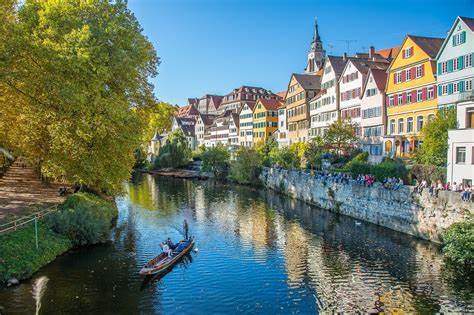
Krakow, Poland – 29 June to 27 July
Kraków is located in the southern part of Poland, near the border with Slovakia, and it is one of the country’s oldest and most beautiful cities. Serving as the capital of Poland until 1596, Kraków remains an important cultural and academic center today. It is known for its well-preserved medieval core and vibrant cultural scene. Kraków is a city where the past and present coexist in harmony. With its rich history, cultural significance, beautiful architecture, and modern vibe, it attracts visitors from around the world. Whether you are interested in history, art, food, or simply exploring a city full of life, Kraków offers a bit of everything.
Jagiellonian University in Kraków, is one of the oldest universities in Europe. It is renowned for its rich history, academic excellence, and contributions to science, culture, and education. Founded in 1364 by King Casimir III the Great, it is the oldest university in Poland and one of the oldest in the world. The university’s history and legacy continue to shape its identity today.
Polish Language
Malaga University is a young and modern university which has been offering Spanish courses to students from all over the world for more than a decade. More than 2000 foreign students take part in one of its Spanish language and cultural courses, with students coming from all corners of the world.
| Language Classes | Cultural Tours | Required Level |
| The Polish language programs, the teaching methods and most of the teaching aids used during the summer courses have been developed by the staff of the Jagiellonian University Institute of Polish Language and Culture for Foreigners. The Institute is a leading research institution on teaching of Polish as a second and foreign language. As a result of methodological studies and extensive practical experience of our teachers we have worked out our own method of teaching Polish, which is of an eclectic character. Language classes are held from Monday to Friday at 8:45-12:00. | Thursday, 3 July 2025: INTEGRATION TRIP TO THE JURA VINEYARD Sunday, 6 July 2025: SIGHTSEEING OF THE OLD TOWN IN KRAKOW Sunday, 13 July 2025: TRIP TO THE ŚWIĘTOKRZYSKA ZAGRODA KULTURY “HARMONIA” (full-day trip!) Sunday, 20 July 2025: SIGHTSEEING OF THE SALT MINE “WIELICZKA” | Participants whose level of Polish is above the A1 (complete beginner) level take a compulsory placement test to determine the level of language proficiency and qualify for the appropriate language group. The test is held before the start of the program and consists of two parts: WRITTEN – online on the Open UJ platform. ORAL – remotely between 5 and 31 May 2025. |
The University offers courses open to all levels: A1 (beginner) through to C2 (mastery), according to the European framework. Students take an entry-level test upon arrival, and are then divided into groups accordingly. Each course includes books, learning material and basic medical insurance, and students receive a copy of the class timetable on the first day.
| Accommodation | Practical Information |
| Room standard: university. Each room has its own bathroom. The rooms can be equipped with (bed linen, basic tableware, telephone, refrigerator, etc.), with Internet access (from own, configured laptop). Participants will have a choice of accommodation in single or double (shared) rooms. Reservations for such a room must be made on the Application Form and will be accepted on a first-come, first-served basis; after the participant arrives, only as space allows. The price of accommodation in a double (shared) room is included in the price of the Full Program. Additional fee of £210 for a single occupancy room. Board includes breakfast and dinner served in the form of a buffet. The meal menu includes only meat and vegetarian diets. For organizational reasons we are not able to meet the rigors of strict elimination diets (post-surgery, celiac disease, low-gluten, low-sodium, etc. and vegan), so please kindly take this information into consideration before signing up for the program. You should choose the preferred diet and indicate food allergies (e.g., nuts, drupes, cow’s milk protein, eggs, dairy products) – if applicable, in the Application Form. This Summer Programme can also be applied for without accommodation and board if you wish to make your own arrangements. | ASSISTANTS Support from assistants is provided to Summer School participants. Assistants are present at the hotel on accommodation days and participate in trips of the tourist and cultural program. WF-FI Summer School participants have access to Wi-Fi on the premises of the Jagiellonian University. Login details are sent by e-mail before the program starts. ISIC CARD (International Student Identity Card) Participants with current student status can purchase an ISIC (International Student Identity Card) before arriving in Poland, which entitles them to discounts, among others: for public transport in Krakow. PUBLIC TRANSPORTATION IN KRAKOW and MONTHLY TICKET We recommend purchasing a monthly ticket “Metropolitan Ticket – network” for Zone I for participants coming to Krakow for a longer period of time. The Kraków City Card is a personal electronic medium for a season ticket. In order to obtain it, you must go to one of the Passenger Service Points. IMPORTANT: you must have one passport size photo of yourself with you. |
Costs you will need to cover
| Programme Fee | PLN 4290 (£860) |
| Accommodation + Breakfast and evening meal | PLN 5006 (£1001) Single room additional fee PLN 1049 (£210) |
| Flights (approx.) | £220 |
| Other (approx.) insurance, travel to airport etc. | £50 – £100 |
Turing Funding
| Grant Type | WP Students* | Non-WP Students |
| Living Costs Grant | £588 | £476 |
| Travel Grant | £250 | NA |
Any costs that are higher than the grant amounts will need to be self funded.
* Please see WP information further down the page to see if you would qualify.

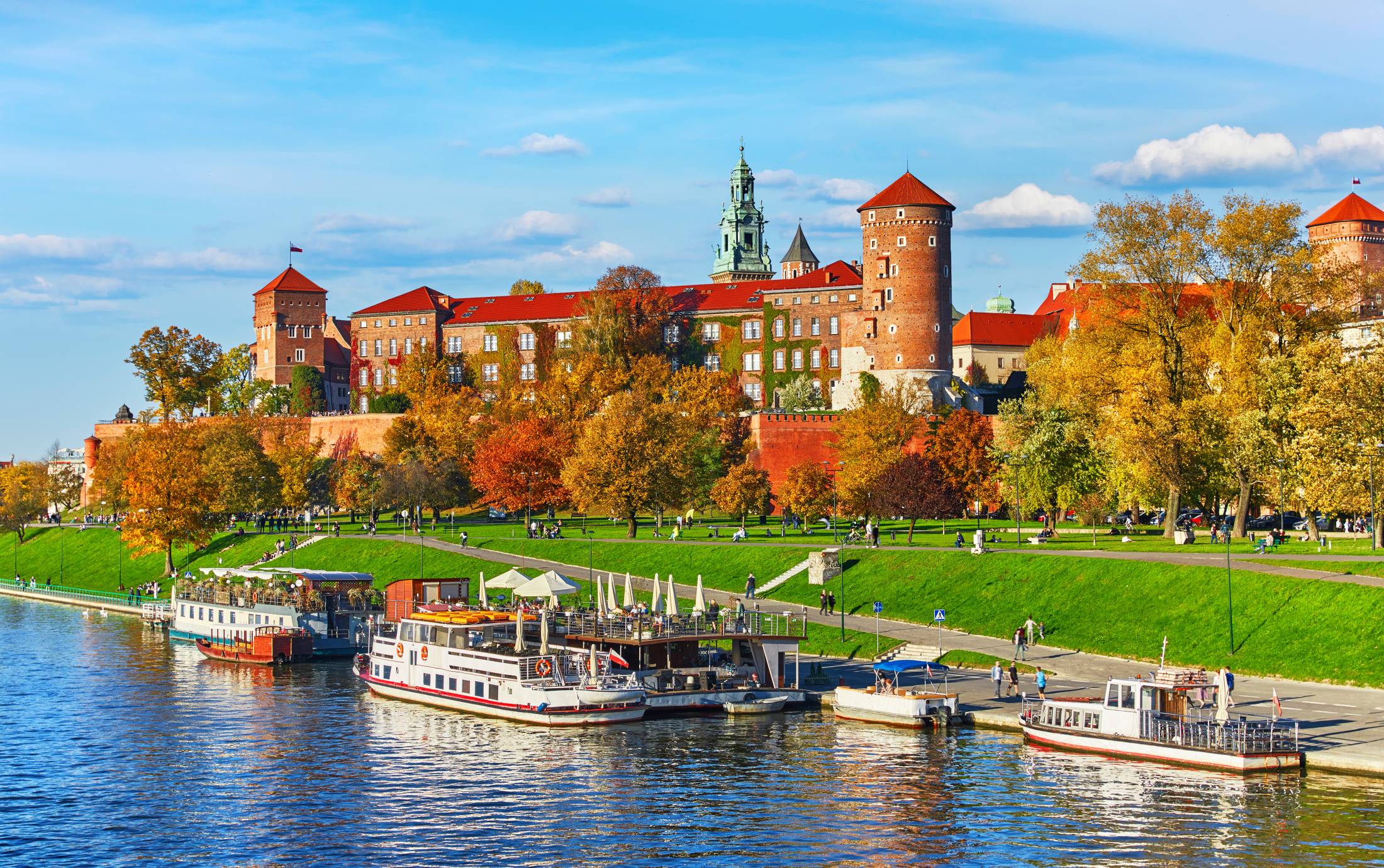
Who are the summer programmes for?
Summer programmes are open to all full-time students at both undergraduate and postgraduate level and both home and international students studying at Edge Hill University are eligible to apply. The summer programme you apply for does not need to be linked to your academic course of study, you are free to apply for any programme that you have a personal interest in. For foreign language programmes, you do not need any prior experience, you will be placed in an appropriate level group based on an entry test at the start of the programme.
Widening Access and Participation (WP) students
WP students are entitled to a Travel Grant as well as the enhanced Living Cost Grant. You will also be able to have any visa and travel insurance costs reimbursed to you. Please be aware that the Travel Grant is a set amount based on distance and will not necessarily cover the full cost of your travel.
To be classed as a WP student you must meet at least one of the following criteria:
- You have an annual Household income of £25,000 or less (assessed by Student Finance)
- You are care-experienced (this will need to be registered with Student Finance)
- You are an estranged student (this will need to be registered with Student Finance)
- You have caring responsibilities
- You are a refugee or asylum seeker
- You receive Universal Credit or income based benefits (note that you must be the recipient, not a partner or family member)
How to apply
Please complete the application form by clicking the button below. Once your application form has been received we will be in contact with the details of your next steps and what to expect.
The application deadline is 30 March 2025.
Contact the Study Abroad Team
Find us:
Study Abroad Office
Edge Hill University
St Helens Road
Ormskirk
Lancashire
L39 4QP
United Kingdom